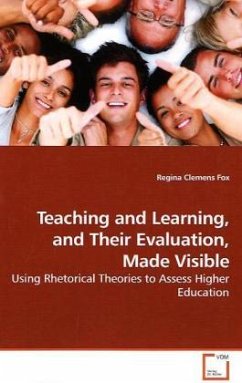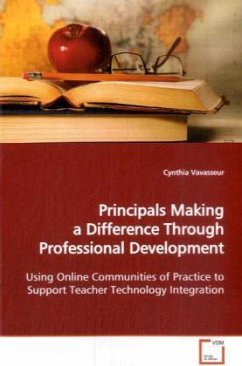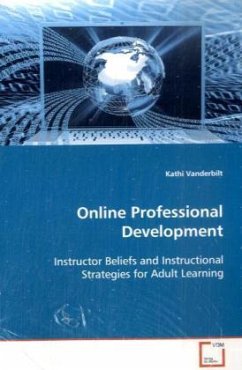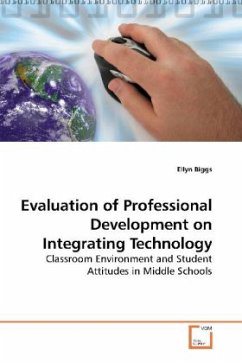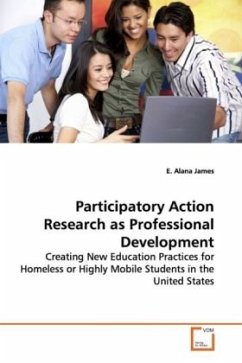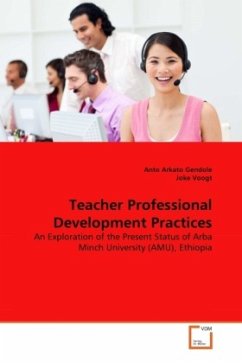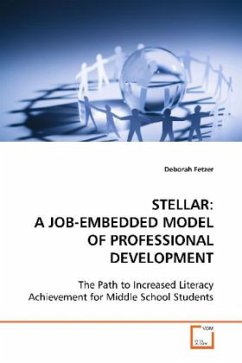
Professional Development Reform: Collegiality, Learning, and Change
A Teacher Research Inquiry of Teachers' Perspectives Surrounding the Context of Professional Development
Versandkostenfrei!
Versandfertig in 6-10 Tagen
52,99 €
inkl. MwSt.

PAYBACK Punkte
26 °P sammeln!
Significant professional development has becomelimited in the current organization of schoolsbecause social, political, cultural, and structuralinfluences invade the professional context ofteachers and can impede professional development.This book provides an opportunity to share teachers''experiences surrounding the context of professionaldevelopment, explore a collaborative model ofprofessional development, and redefine professionaldevelopment from teachers'' perspectives. Findingsfrom this inquiry indicate that several changes mustoccur to enable teachers to assume a greater role inthe prof...
Significant professional development has become
limited in the current organization of schools
because social, political, cultural, and structural
influences invade the professional context of
teachers and can impede professional development.
This book provides an opportunity to share teachers''
experiences surrounding the context of professional
development, explore a collaborative model of
professional development, and redefine professional
development from teachers'' perspectives. Findings
from this inquiry indicate that several changes must
occur to enable teachers to assume a greater role in
the professional development context: 1) A change in
relations of power in the educational context, 2) A
structural change in schools, teaching, and learning,
3) A change in the organizational schedule of the
teaching day, and 4) A change towards
teacher-generated learning for all teachers, both
veteran teachers and future candidates. The analysis
is especially useful for educators who support the
new paradigm of professional development, which
promotes collegial interaction, continuous learning,
and building a community of teachers who are both
learners and experts.
limited in the current organization of schools
because social, political, cultural, and structural
influences invade the professional context of
teachers and can impede professional development.
This book provides an opportunity to share teachers''
experiences surrounding the context of professional
development, explore a collaborative model of
professional development, and redefine professional
development from teachers'' perspectives. Findings
from this inquiry indicate that several changes must
occur to enable teachers to assume a greater role in
the professional development context: 1) A change in
relations of power in the educational context, 2) A
structural change in schools, teaching, and learning,
3) A change in the organizational schedule of the
teaching day, and 4) A change towards
teacher-generated learning for all teachers, both
veteran teachers and future candidates. The analysis
is especially useful for educators who support the
new paradigm of professional development, which
promotes collegial interaction, continuous learning,
and building a community of teachers who are both
learners and experts.



